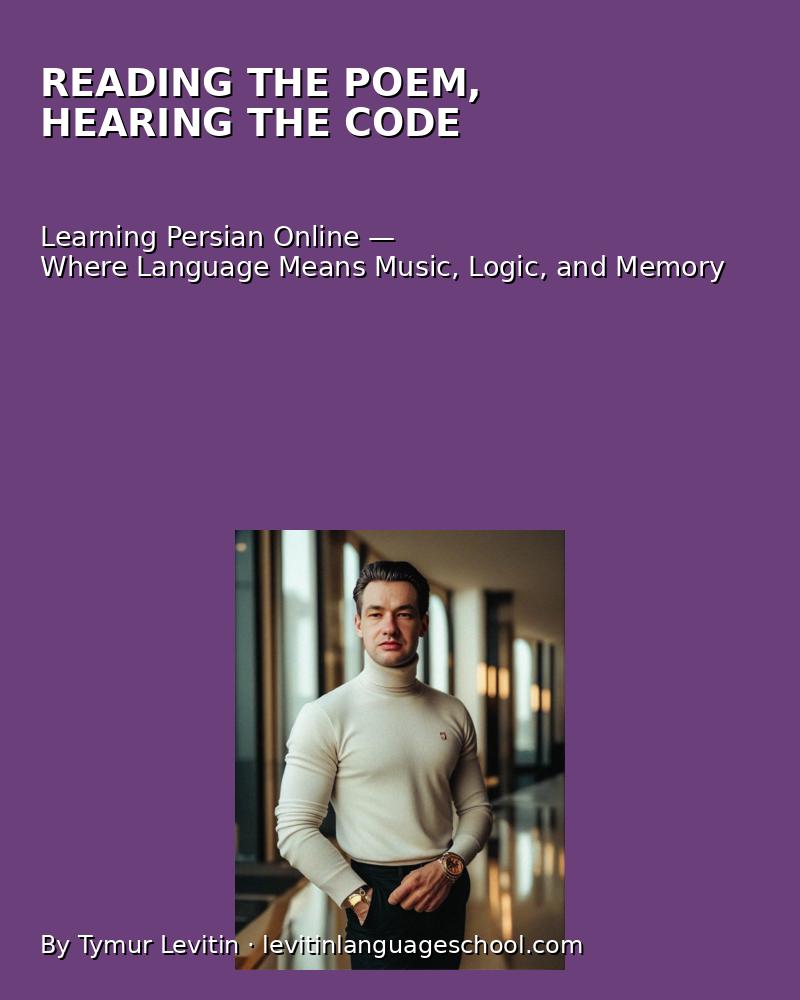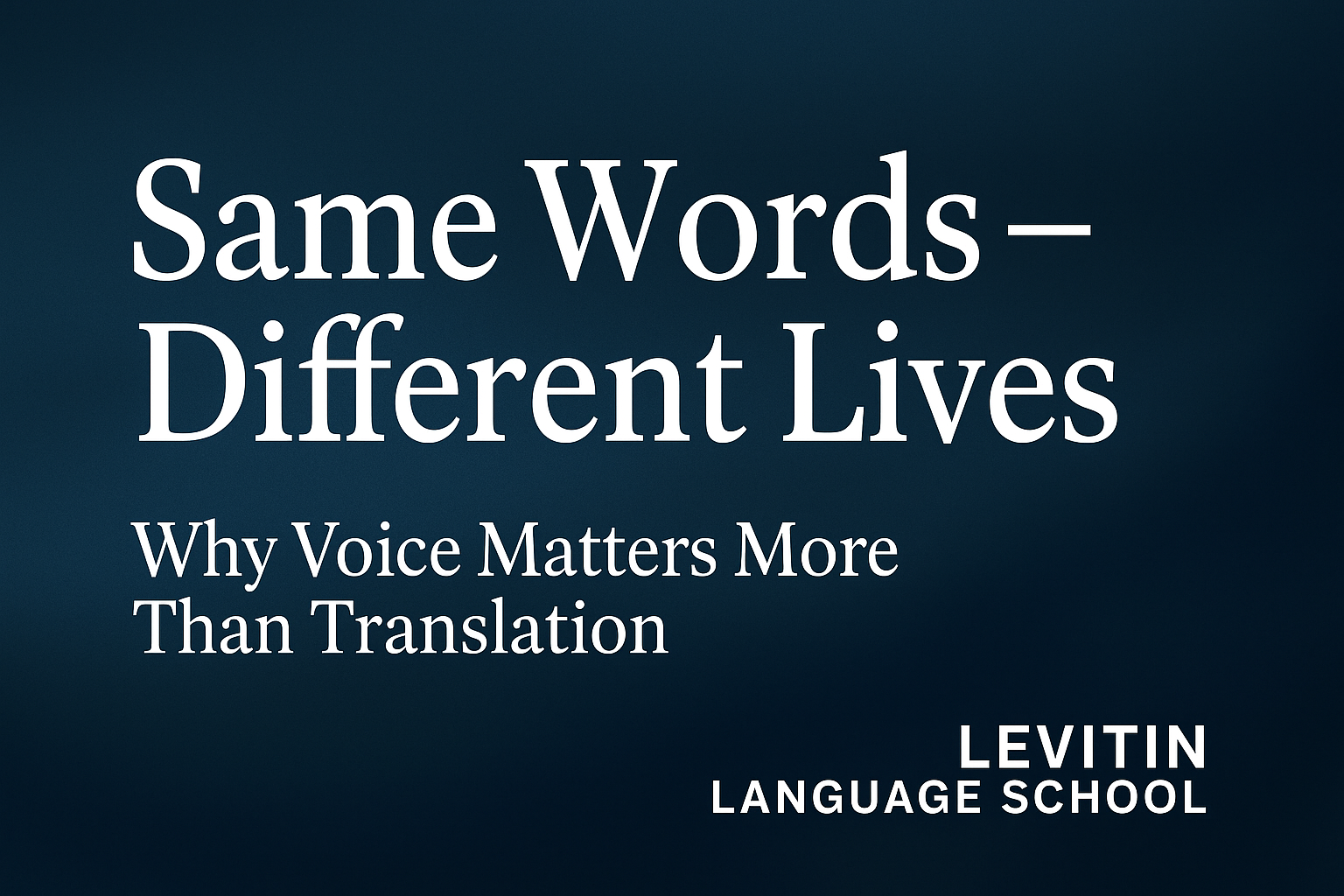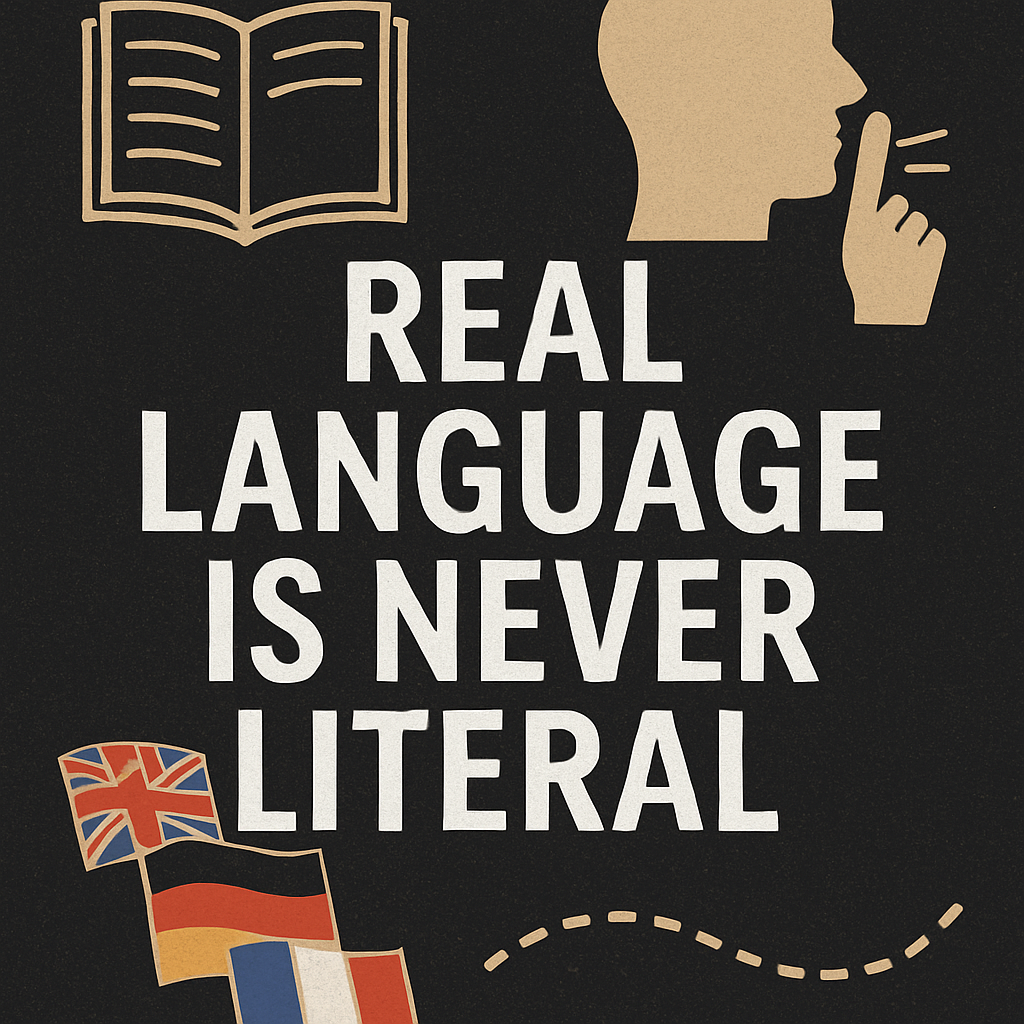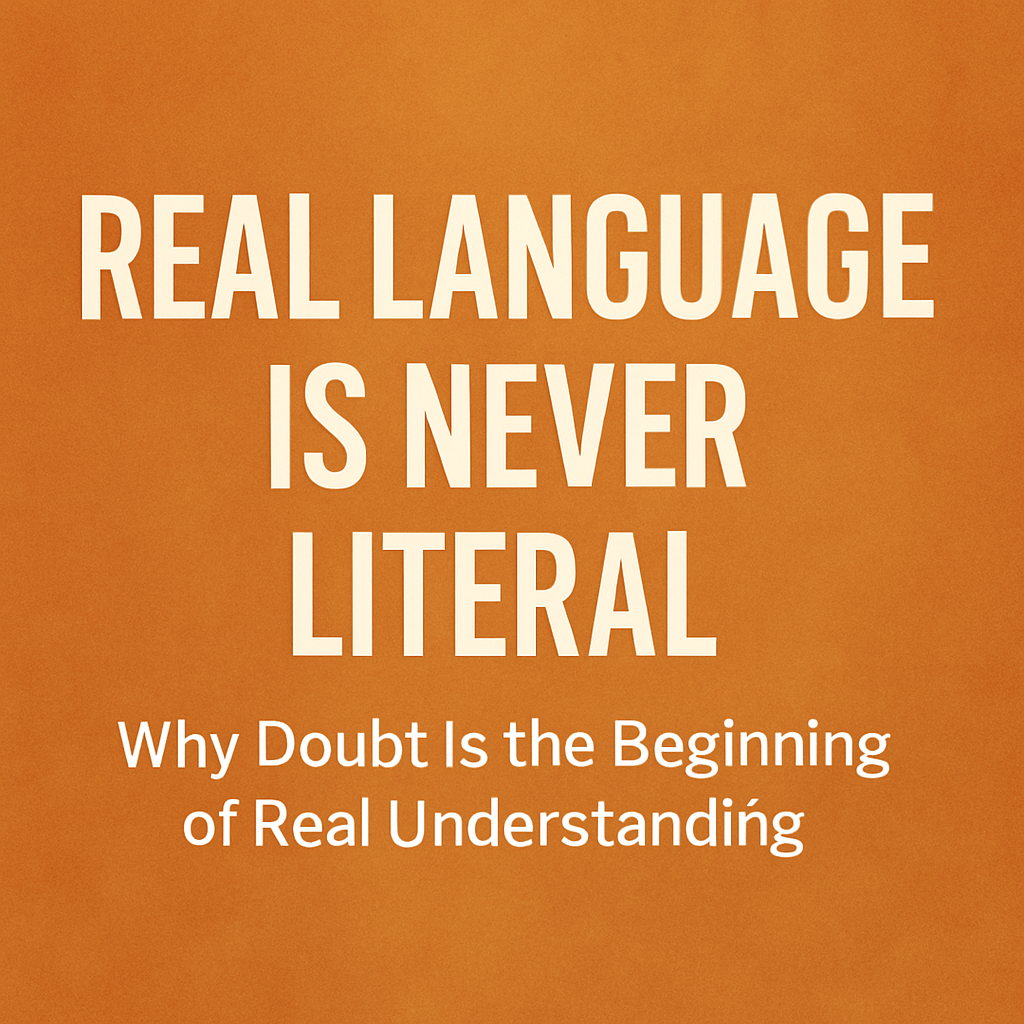Words are not what they seem.
They’re never just words.
Every day, students ask me how to say something.
They have the words. They have the grammar.
But something still feels off. The meaning doesn’t land. The listener doesn’t react the way they expected.
And then they realize:
They translated the sentence — but they didn’t express what they meant.
Because real language is never literal.
Words don’t carry meaning. We do.
One student once asked how to express something he’d been told during a job interview:
“You speak too slowly.”
He wanted to explain that this wasn’t about English —
he spoke the same way in his native language, too.
“That’s just how I speak,” he said. “Not because I’m unsure. It’s just… me.”
He wondered how to say that — and we discussed a few ways to express it clearly and respectfully.
But the usual phrases didn’t help:
- “I’m not fluent”? Not true.
- “I’m not confident”? Definitely wrong.
- “I speak slowly”? Sounds like a flaw.
What he needed was language that could carry his identity — not just vocabulary.
Literal language is not how humans think
Another student — from Honduras — reminded me how a single word can break into two worlds.
We were practicing German. I asked what he understood by the word Штіл..
He paused and replied, “Style — like clothing or personality.”
But I had said Stille.
Same root. Different spelling. Completely different meaning.
- Штіл. = style.
- Stille = silence.
In spoken German, the final -e в Stille is often dropped or softened — just like in many Slavic languages.
So when he heard “Stille,” it sounded like “Stil” — and that tiny sound shift led to a completely different interpretation.
(We’re working on a separate article about how fluent speech often hides critical endings — this was a perfect real-life example.)
And in his culture, silence just meant the absence of sound. Nothing more.
But in German — and many languages — silence can mean peace, fear, reflection, formality, or even power.
He heard one word, thought it meant another, and missed the depth completely.
That moment wasn’t a mistake in listening.
It was a difference in how language reflects culture.
Not all “style” and “silence” are the same
In German, Штіл. і Stille are not just different words — they reflect different dimensions of life.
But these meanings don’t always match across cultures.
- In English, style often means clothing, design, or expression.
- In Russian or Ukrainian, стиль refers to writing, speech, or personal manner.
- In Latin American Spanish, estilo can refer to social image or attitude.
- In Slavic cultures, silence might signal distance, anger, or respect.
- In English, silence is often just “no talking.”
- In German, Stille can mean reverence, serenity, or even warning.
That’s why literal translation fails:
You don’t translate the word — you translate the world behind it.
Stop translating. Start thinking in the language.
Students often ask me: “How do I say this in English?” або “What’s the German word for this?”
And the truth is — there often isn’t one.
Because the sentence they want to say was never designed for the other language.
It’s a sentence from a different world. A different rhythm. A different mind.
That’s why real fluency doesn’t come from memorizing phrases.
It comes from understanding the logic of meaning — and learning how to think in the new code.
Teaching language means teaching how to think
As a teacher, I don’t correct people just to fix mistakes.
I listen for meaning. For mismatch. For friction between thought and word.
My job is not just to teach vocabulary —
but to help people move their meaning into a different system.
Because words aren’t just translations.
They’re decisions.
And every language offers a different set.
Real language is who you are — not what you memorized
You don’t need to speak fast.
You don’t need to be perfect.
But you need to know what you’re really saying — and whether the language you chose can carry your truth.
Because real language is never literal.
It’s always personal.
🔗 Related reading from our blog:
→ The Quiet Code: Introduction to “The Language I Live”
→ Мовний бар'єр - це не про мову
→ Чому ми не обіцяємо, що ви заговорите за 30 днів
📘 Author’s Column — The Language I Live
Language. Identity. Choice. Meaning.
📍 Tymur Levitin — founder, teacher, and translator
🔗 Виберіть свою мову
© Тимур Левітін
























